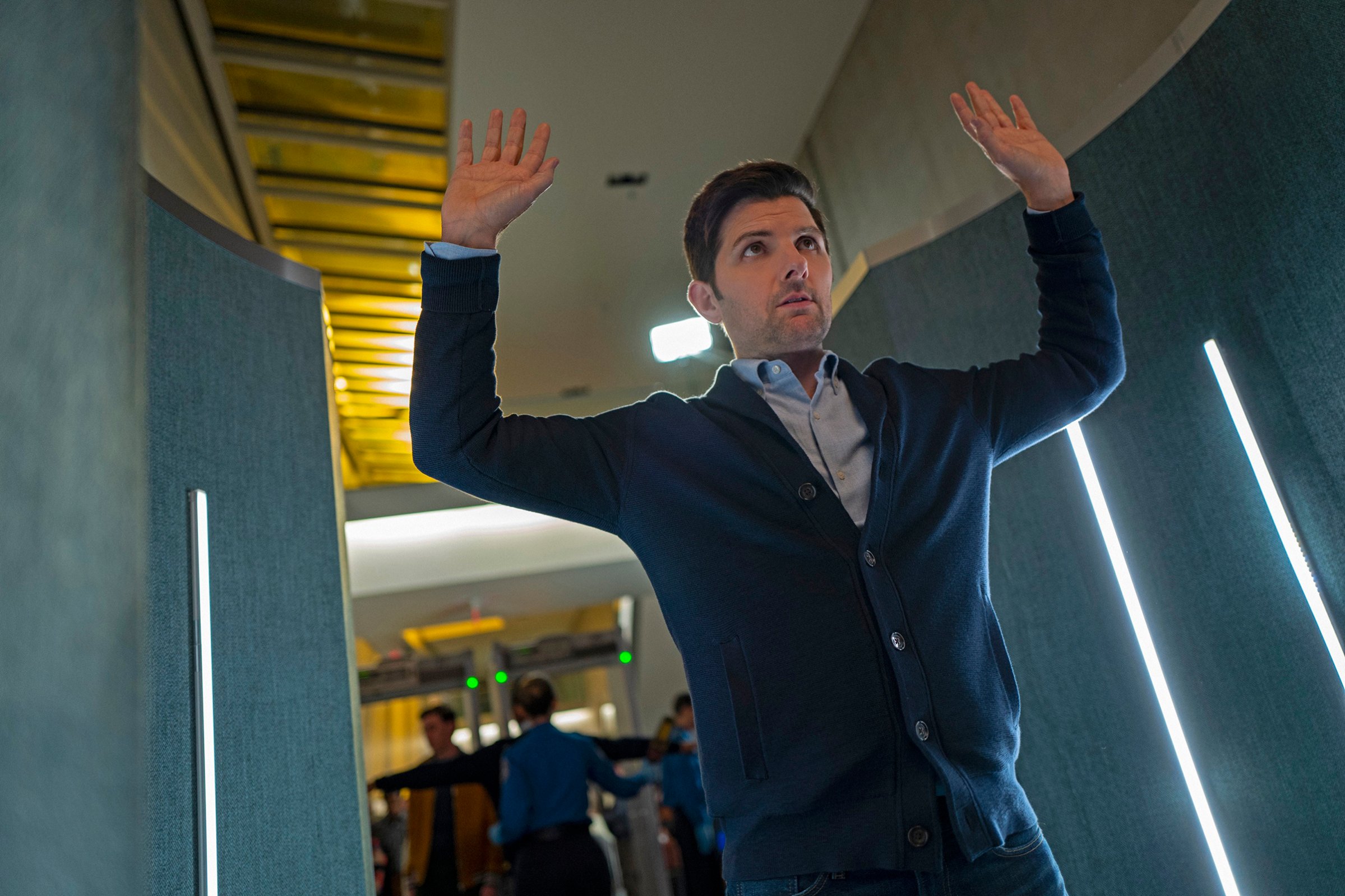
It’s a maddeningly familiar scenario: A young black man (Damson Idris) driving on a deserted road gets pulled over by a white police officer. “Just like we always talk about–no attitude, just be respectful,” his mom Nina (Sanaa Lathan) anxiously reminds him from the passenger seat. Hoping to make it to his first day at a historically black college without incident, they endure the cop’s casual racism. But when the officer sees an old camcorder recording, he reaches into the car and a scuffle ensues. Just as a gunshot seems inevitable, Nina hits the rewind button, and she and her son are transported back in time.
Welcome to the new Twilight Zone, which is very much what you’d expect from a reboot of the classic sci-fi anthology series helmed and hosted by Get Out mastermind Jordan Peele. (The comedian turned socially engaged filmmaker’s latest hit movie, Us, arrived in theaters in March.) The scene shares resonant details with the stories of Sandra Bland, Philando Castile and other black victims of widely publicized police violence. Yet the episode, “Replay,” isn’t just about one prototypical experience of oppression. Peele’s Twilight Zone, debuting on April 1 on subscription-only CBS All Access, is a dimension where the trauma that people–and communities–repress in order to move forward can throw the universe out of whack.
For the protagonists of these stories, the past is a festering wound. In “Nightmare at 30,000 Feet,” an airplane-set vignette whose series of chilling last-minute twists rescues a plot that seems to be heading somewhere predictable, Adam Scott plays a journalist throwing himself into work too soon after a breakdown. “A Traveler” forces an indigenous Alaska state trooper (Marika Sila) to decide whom to trust: her power-tripping white boss (Greg Kinnear) or a mysterious foreigner (Steven Yeun) who appears at the station on Christmas Eve.
Like Peele’s films, the show works on multiple levels, weaving together the personal and the political to craft characters as nuanced as its themes. “The Comedian” casts Kumail Nanjiani as an inept stand-up who discovers he can get laughs by discussing people he knows; the only problem is that the people he mentions instantly cease to exist. A case study in how one partner’s selfishness can eat away at a romance, the episode also functions as an astute metaphor for comedy’s parasitic relationship to the comedian’s life offstage. Occasionally these multitasking episodes go off the rails. But most of the time, they bend the mind and expand it at once.
Whenever an old franchise resurfaces with updated values or more diverse personnel, some pushback is inevitable. The thing is, The Twilight Zone–which ran from 1959 to 1964, was rebooted in the ’80s and 2000s, and set a template for the comparatively repetitive tech-dystopia scenarios of Black Mirror–was always a progressive show. At a time when TV offered mostly light entertainment, Rod Serling used science fiction to cloak allegories for racism, censorship, nukes. That makes Peele an ideal successor–and it’s fitting that he’s made the return of the repressed the central metaphor of a revival emerging amid a resurgence of authoritarianism and white supremacy in America.
What isn’t ideal is the show’s platform, a subscription service that capitalizes on legacy fan bases’ willingness to shell out for a Good Wife spin-off or a new Star Trek. CBS reported in August that All Access had just 2.5 million subscribers–about 20% of The Big Bang Theory‘s weekly audience. By contrast, the original Twilight Zone aired on CBS in an era when viewing options were very limited, and its easy accessibility was crucial to its influence. (Now, you can watch the old show on all major streaming services.) Peele’s update is fresh, smart, entertaining and inspired. It’s just a shame to see it relegated to such a tiny corner of the cultural conversation.
More Must-Reads from TIME
- Cybersecurity Experts Are Sounding the Alarm on DOGE
- Meet the 2025 Women of the Year
- The Harsh Truth About Disability Inclusion
- Why Do More Young Adults Have Cancer?
- Colman Domingo Leads With Radical Love
- How to Get Better at Doing Things Alone
- Michelle Zauner Stares Down the Darkness
Contact us at letters@time.com